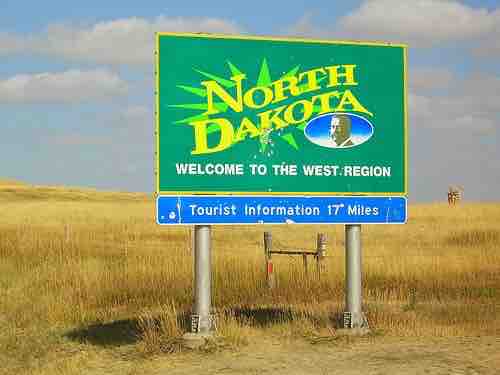Tribes’ Talk to North Dakota Lawmakers Canceled over Protest

BISMARCK, N.D. (AP) — Native American tribal leaders’ biennial address to the North Dakota Legislature will not happen in 2017, a committee said Thursday in deciding to forgo formal events at the state Capitol due to security reasons involving the Dakota Access pipeline protests.
The 10-3 vote by the North Dakota Legislative Management Committee means there’ll be no presentations from the state’s chief justice or tribal leaders when lawmakers reconvene Jan. 3. The measure exempts the governor’s State of the State address, which is required by state law.
Ongoing protests of the four-state, $3.8 million pipeline in southern North Dakota have “significantly strained” law enforcement and the state Highway Patrol, which provides security at the state Capitol, Republican House Majority Leader Al Carlson said. Nearly 500 people have been arrested since August, the encampments show no sign of breaking up and there have been four large organized protests in the Bismarck-Mandan area this week; Thursday’s protests in Bismarck led to eight arrests.
“We’re trying to be proactive,” Carlson said. “In no way is this infringing on anyone’s First Amendment rights. History shows us in recent months that we need to be cautious.”
Democrats on the committee opposed the motion, especially since it scrubbed the traditional tribal address.
“This is not going to help tribal relations and it probably will set us up for even more bad situations,” said Rep. Marvin Nelson of Rolla. “We need to be making every effort we can to reach out to the tribes at this time.”
By tradition, lawmakers hear speeches during the first week of each odd-numbered-year session, including from North Dakota’s chief justice and by one leader from the state’s tribes — Spirit Lake Sioux, Three Affiliated Tribes the Turtle Mountain Band of Chippewa and the Standing Rock Sioux.
No tribe had been chosen to give the address for 2017, a tradition that dates back to 1985, according to Legislative Council Director Jim Smith.
The chairman of the tribe behind the legal push to stop the nearly 1,200-mile pipeline, Standing Rock Sioux’s Dave Archambault, gave the address in 2015, asking lawmakers to do more to protect public safety and the environment during the state’s oil boom. His tribe and other protest supporters say the pipeline, being built by Texas-based Energy Transfer Partners, because the tribe says threatens its water sources and cultural sites.
Carlson said the Legislature will err on the side of safety at the Capitol.
“Protecting people is our No. 1 priority,” he said.
In early November, nearly 20 protesters who sat, chanted, sang and refused orders to leave were arrested in the building’s judicial wing. And the Highway Patrol said security footage caught two people dressed splattering motor oil on the sidewalk and Capitol building on Halloween night. They also left a sign with the message, “You can’t drink oil,” appearing to be in solidarity with the protesters, who call themselves water protectors.
Also Thursday, an administrative law judge was appointed to oversee a potential hearing on whether ETP violated orders from state regulators, which could result in a $15,000 fine.
The State Historic Preservation Office concurred with the company’s plan to divert construction around artifacts — a plan the Public Service Commission says it didn’t approve — and ETP has said it didn’t do anything wrong. It can agree to a fine or request a hearing to fight one. Though any hearing wouldn’t likely happen until next month.
Related News
Related News

- Keystone Oil Pipeline Resumes Operations After Temporary Shutdown
- Biden Administration Buys Oil for Emergency Reserve Above Target Price
- Freeport LNG Plant Runs Near Zero Consumption for Fifth Day
- Enbridge to Invest $500 Million in Pipeline Assets, Including Expansion of 850-Mile Gray Oak Pipeline
- Williams Delays Louisiana Pipeline Project Amid Dispute with Competitor Energy Transfer
- Evacuation Technologies to Reduce Methane Releases During Pigging
- Editor’s Notebook: Nord Stream’s $20 Billion Question
- Enbridge Receives Approval to Begin Service on Louisiana Venice Gas Pipeline Project
- Russian LNG Unfazed By U.S. Sanctions
- Biden Administration Buys Oil for Emergency Reserve Above Target Price




Comments